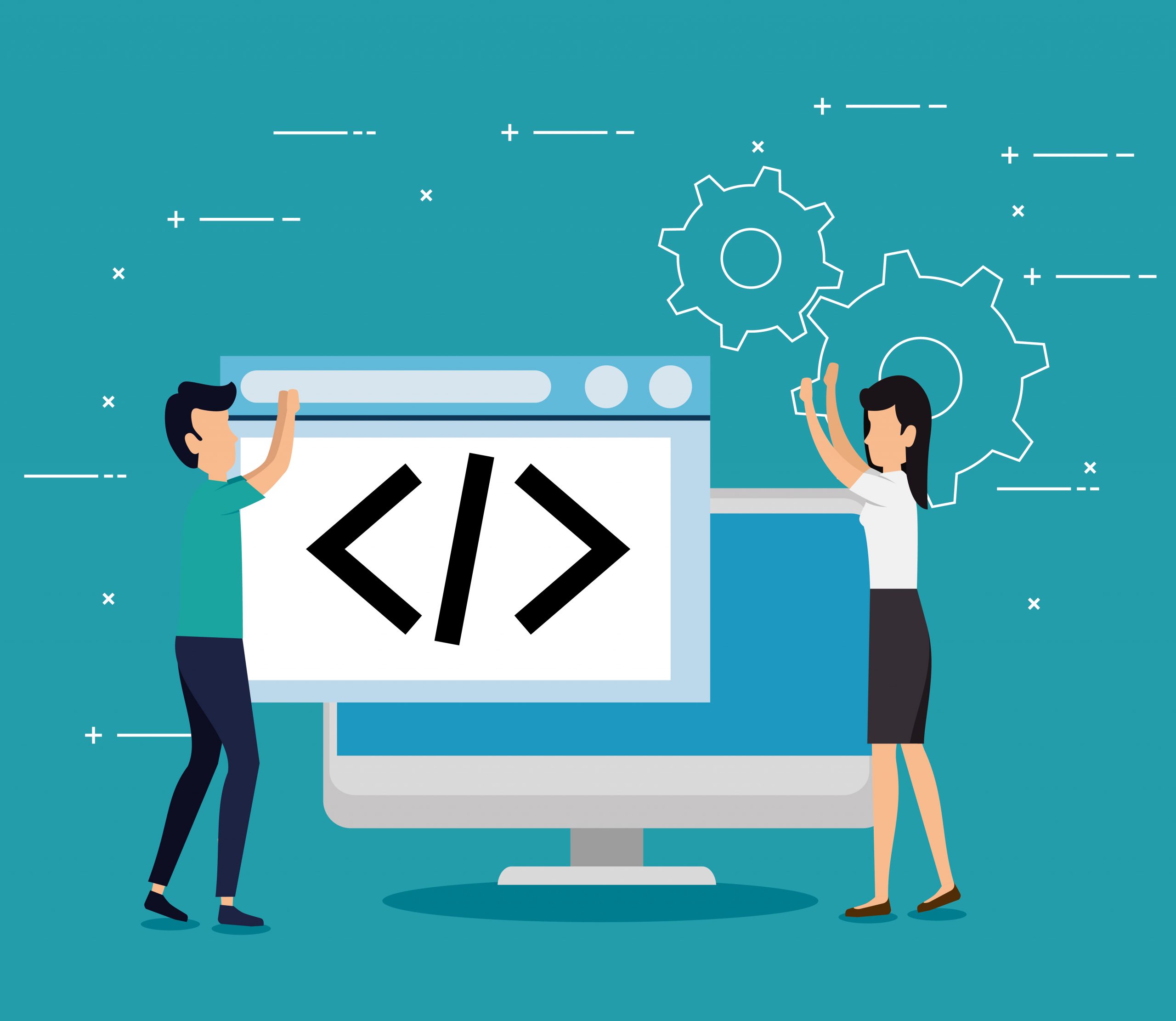In the dynamic world of talent acquisition, the integration of AI in the recruitment process is not just a trend but a transformative shift towards making data-driven decisions. This evolution stands at the crossroads where cutting-edge technology meets human-centric recruiting, offering a promising horizon for both employers and candidates. The emergence of AI and recruitment strategies powered by artificial intelligence in talent acquisition heralds a new era of efficiency, precision, and innovation. By harnessing the capabilities of AI recruitment software, companies are now able to streamline their hiring processes, from skills assessment to predictive analytics, ensuring that the right talent meets the right opportunity at the right time.
As we delve deeper into the subject, our discussion will span across the key benefits of leveraging AI in talent acquisition, highlighting how AI-driven recruitment transforms traditional hiring workflows into robust, strategic processes. We’ll explore real-life applications and success stories, showcasing how AI tools for talent acquisition are implemented across various industries to enhance recruitment outcomes. Through an advisory lens, this article aims to shed light on how artificial intelligence in recruiting not only accelerates the recruitment process but also underpins the development of more sophisticated recruitment strategies. With a focus on innovation, efficiency, and a data-centric approach, the journey into AI in recruitment process opens up new pathways for achieving excellence in talent acquisition.
Understanding AI in recruitment
Defining AI and Its Role
Artificial Intelligence (AI) in recruitment leverages the ability of computers to perform tasks typically requiring human intelligence, such as analyzing vast amounts of data and making decisions. AI’s role in recruitment is transformative, automating and streamlining processes to enhance efficiency and accuracy.
Benefits of AI in recruitment
The integration of AI in recruitment processes offers several advantages. It significantly reduces the time spent on administrative tasks like resume screening, allowing recruiters to focus on more strategic activities. AI tools enhance workflow efficiency and are capable of screening resumes with greater speed and accuracy than human recruiters, thus expediting the hiring process. Additionally, AI-driven tools help in reducing unconscious bias, promoting a more diverse and inclusive workforce.
Challenges in implementation
Despite its benefits, the implementation of AI in recruitment faces challenges, including potential biases in AI algorithms. These biases can arise from the data used to train AI systems, potentially leading to unfair advantages for certain candidates. Furthermore, reliance on AI may reduce personal interaction during the recruitment process, which can impact candidate experience negatively.
Incorporating real-life case studies, such as the use of AI by global corporations to streamline their recruitment processes, further illustrates AI’s impact. For instance, a leading tech company implemented AI to enhance their talent acquisition, resulting in a 40% reduction in hiring time and a significant improvement in candidate quality, demonstrating AI’s potential to transform recruitment practices effectively.


Key benefits of AI in talent acquisition
Speeding up processes
Artificial Intelligence significantly streamlines the recruitment process by automating the initial screening of applications, allowing recruiters to focus on more strategic tasks. AI-driven tools can analyze vast amounts of data, including resumes and job descriptions, to quickly identify the most suitable candidates, reducing the manual workload and accelerating decision-making. This efficiency not only shortens the hiring cycle but also enables HR teams to handle larger volumes of applications with greater accuracy.
Enhancing candidate experience
AI enhances the recruitment experience by providing timely feedback and personalized interactions. Tools like AI chatbots offer real-time responses and can guide candidates through the application process, making it more engaging and less stressful. This immediate communication helps maintain candidate interest and reduces the uncertainty that often accompanies job applications, thereby improving the overall perception of the company’s hiring process.
Improving quality of hire
Through the use of advanced algorithms and data analytics, AI improves the quality of hires by ensuring that candidates not only match the job requirements but also fit the company culture. AI tools analyze historical performance data and employee surveys to predict candidate success with high accuracy. This data-driven approach minimizes the risks of poor hires, which can be costly and detrimental to organizational morale and productivity.
Real-Life applications and success stories
Automated resume screening
Mastercard’s integration of AI-driven solutions, such as Automated Interview Scheduling, has revolutionized their recruitment process. By automating over 5,000 interviews, with 88% scheduled within 24 hours, they’ve cut down the time for scheduling by more than 85%. Similarly, 7-Eleven implemented conversational AI, saving their stores 40,000 hours per week in recruiting tasks, and automating 90% of the hiring process. These innovations not only enhance the efficiency of the recruitment process but also improve the candidate experience significantly.
Improved candidate matching
AI technology facilitates better candidate-job matching by utilizing AI-driven fit scoring and one-way interviews. For instance, Mastercard leverages this technology to enhance the screening and selection process, ensuring faster and more precise candidate placements. Google’s use of AI tools to mitigate biases during resume screening ensures candidates are evaluated solely on their skills and experiences, promoting a fair and inclusive hiring process.
Enhanced onboarding
AI’s impact extends to onboarding, where companies like Amazon and IBM have utilized AI to streamline administrative tasks and enhance the candidate experience during the onboarding phase. Amazon’s AI tools automate repetitive tasks such as resume screening, significantly reducing time-to-hire. IBM enhances the onboarding experience with AI-driven chatbots that provide real-time updates and personalized communication, making the process more engaging for new hires.
These real-life applications underscore the transformative potential of AI in recruitment, demonstrating its ability to streamline processes, enhance accuracy, and improve both the candidate and employee experience.
Conclusion
Throughout this article, we’ve ventured into the transformative role of AI in the recruitment process, highlighting its pivotal role in streamlining hiring workflows, enhancing candidate experiences, and ensuring a higher quality of hires through data-driven decisions. By exploring real-life applications and success stories, such as Mastercard’s automated interview scheduling and Google’s bias-mitigating tools, we’ve illuminated the tangible benefits and challenges AI integration poses for talent acquisition. These examples underscore the potential of AI to revolutionize recruitment strategies, making them more efficient, unbiased, and effective at matching candidates with opportunities.
In reflecting on the journey AI has charted in the recruitment landscape, it’s evident that its integration is not merely an innovation but a necessity for staying competitive in the talent acquisition arena. As organizations continue to harness AI’s capabilities, the future of recruitment looks promising, with enhanced precision, fairness, and efficiency at its core. The implications of these advancements extend far beyond the immediate improvements in hiring processes, suggesting a future where AI not only refines talent acquisition practices but also plays a crucial role in shaping organizational success. As we look forward, the intersection of AI and recruitment will undoubtedly continue to evolve, offering new challenges and opportunities for innovation in pursuit of excellence in talent acquisition.
FAQs
1. How does AI enhance the recruitment and talent acquisition process?
AI significantly improves the recruitment process by managing time-intensive tasks such as communications and initial screenings. This allows recruiters to engage with a larger pool of candidates more efficiently. AI tools also enable recruiters to concentrate on the most promising candidates and assist in identifying passive candidates who are not actively seeking new opportunities but may be a good fit.
2. What does the future hold for AI in recruitment?
The future of AI in recruitment looks promising as it automates routine tasks, enhances candidate sourcing, and improves the efficiency of resume screening and candidate assessments. These advancements lead to quicker hiring processes and better alignment between job requirements and the skills of applicants.
3. Why do many firms incorporate AI in recruiting new talent?
Many firms adopt AI in their recruitment processes due to its numerous advantages. These include increased efficiency, shorter hiring periods, improved candidate experiences, cost reductions, and enhanced diversity in hiring. AI-driven platforms like CloudApper AI Recruiter automate mundane tasks, offer real-time analytics, and provide unbiased evaluations of candidates.
4. What role does AI play in talent development within organizations?
AI plays a crucial role in talent development by using predictive analytics to identify employees who may be considering leaving, pinpoint high-potential employees for leadership roles, and recommend development opportunities throughout the organization. These insights allow HR teams to adopt a proactive approach to their talent management strategies.
References
[1] – https://www.linkedin.com/pulse/benefits-challenges-using-artificial-intelligence-recruitment-yvlne
[2] – https://www.hrmorning.com/articles/top-benefits-of-ai-in-recruitment/
[3] – https://elearningindustry.com/navigating-recruitment-challenges-ways-ai-can-revolutionize-hr
[4] – https://www.techtarget.com/searchhrsoftware/feature/Challenges-of-AI-in-recruitment
[5] – https://www.pageuppeople.com/resource/3-ways-artificial-intelligence-can-speed-up-the-recruitment-process/
[6] – https://www.jobylon.com/blog/how-ai-is-transforming-the-world-of-recruitment
[7] – https://www.wearedevelopers.com/blog/ai-recruiting-improve-hiring
[8] – https://wonderlic.com/blog/employee-selection/hiring/how-ai-in-recruitment-is-changing-the-hiring-process/
[9] – https://medium.com/@channelasaservice/the-future-of-recruitment-how-ai-is-elevating-candidate-experience-c22fa1a55a9c
[10] – https://www.aihr.com/blog/impact-ai-recruitment/
[11] – https://www.linkedin.com/pulse/how-ai-enhancing-candidate-experience-matthew-banks-z4wxe
[12] – https://interviewer.ai/quality-hires/
[13] – https://www.phenom.com/blog/examples-companies-using-ai-recruiting-platform
[14] – https://www.paradox.ai/clients-stories
[15] – https://medium.com/shark-automations/ai-case-studies-success-stories-in-talent-acquisition-transformation-d37c77f87f06



